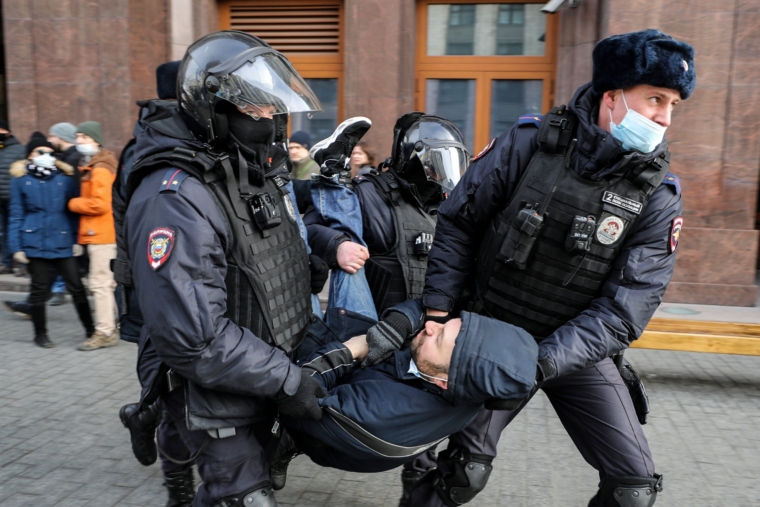Russian President Vladimir Putin’s war in Ukraine is leaving him more isolated than ever as dissent across the globe – and in Russia – grows.
More than 4,300 people in Russia were detained on Sunday at nationwide protests against Mr Putin’s invasion of Ukraine, according to the protest monitoring group OVD-Info, many of them chanting “no to war” and “shame on you”.
Defence Secretary Ben Wallace said on Tuesday that the carnage in Ukraine could spell the end for Mr Putin’s rule in Russia.

“Whatever we think about President Putin, he is done. He is a spent force in the world. No-one will be taking his phone calls in the long term,” he told BBC Radio 4’s Today programme.
How could Putin be removed as Russia’s leader?
Mr Putin, who won his first presidential election in 2000, could be impeached if he were to be charged with “high treason or another grave crime”, according to Washington Examiner’s Christopher Tremoglie, who has lived in Russia and studied its constitution.
Mr Tremoglie writes that according to chapter 93 of the constitution, which provides the guidelines for the impeachment process, charges would be brought by the country’s legislative branch, the State Duma, and would have to be confirmed and concluded by the Supreme Court.
It would eventually fall to the council of the federation to decide whether to impeach the president.
Is it likely to happen soon?
While Mr Putin’s invasion of Ukraine could warrant impeachment proceedings, Mr Tremoglie believes it is unlikely that the Duma will bring any charges against him, especially as Mr Putin’s allies are positioned across parliament.
Further complicating matters is a controversial bill he signed into law in 2021 allowing him to run for president twice more, potentially extending his rule to 2036 – when he will be 84 years old.
More on Russia-Ukraine war
However, there is evidence of growing resentment among Russians against Mr Putin.
“The screws are being fully tightened – essentially we are witnessing military censorship,” Maria Kuznetsova, OVD-Info’s spokeswoman, said on Sunday.
“We are seeing rather big protests today, even in Siberian cities where we only rarely saw such numbers of arrests.”
Protests in January last year saw a similar number of arrests, when thousands demanded the release of opposition leader Alexei Navalny after he was arrested on returning from Germany, where he had been recovering from a nerve agent poisoning.
According to the BMJ, about 15,000 doctors, nurses and paramedics across Russia signed an open letter to Mr Putin urging him to cease hostilities against Ukraine.
In their letter they said they “strongly oppose the military actions carried out by Russian armed forces on the territory of Ukraine” and called for their president to withdraw troops.

